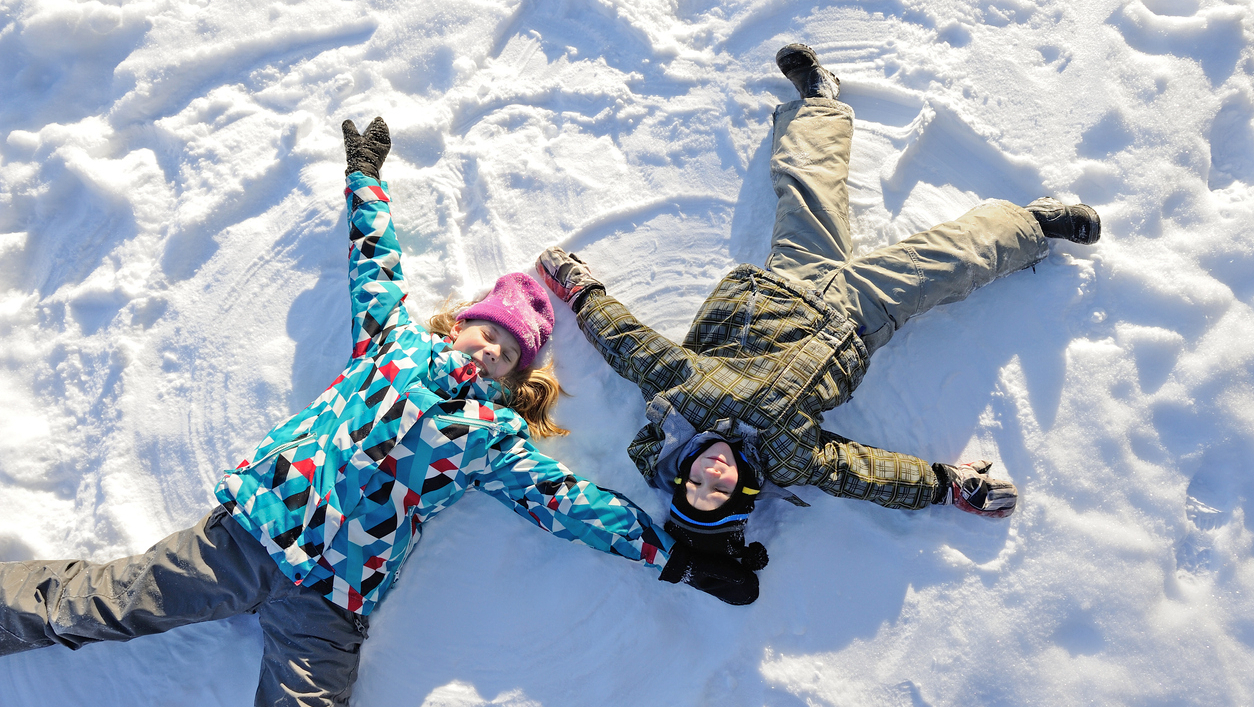Pandemic Nudges Preschoolers Outside
- Written by: Alexis Webster and Lynne Lafave

Physical activity is important for preschool-aged children’s overall health1 but the lure of screen time, cold weather, inadequate space, and caregiver lack of confidence or enthusiasm for outdoor time can create barriers. So how can we support children to get active?
Connections between Pandemic Policies and Movement
Surprisingly, the answer may come from the COVID-19 pandemic. One study found that preschoolers in Alberta took more steps at child care during the pandemic (Fall 2020) compared to pre-pandemic times (Fall 2019).2 Preschoolers also spent more time being physically active and less time being sedentary.2 Another study’s findings may explain why preschoolers’ physical activity increased during COVID. To reduce virus transmission, child care centres followed policy guidelines for cleaning and physical distancing measures. As a result, early childhood educators indicated that going outside more often allowed for physical distancing and relief from a surface cleaning.3 Outdoor environments provide an open space for children to move around in, where they are likely to be active.4 While the pandemic posed many challenges, we learned many lessons about ourselves and each other that we can carry forward!
How active is active enough?
The guidelines indicate that preschoolers (3-4 yrs) should move 180 min per day with a third (60 min) as energetic play.5 As they grow up (5+ yrs), children should accumulate 60 min of moderate to vigorous activity with several hours in light activity.6 Check out our Blog for more information on preschoolers and how active is active enough.
The next time you wonder about how to get your children more physically active? The easy choice is a simple choice:
Play Outside!
READ MORE about how the pandemic impacted eating and physical activity environments in child cares in the peer-reviewed articles below:
The Impact of COVID-19 on Eating Environments and Activity in Early Childhood Education and Care in Alberta, Canada.
Impact of COVID-19 on Early Childhood Educator’s Perspectives and Practices in Nutrition and Physical Activity: A Qualitative Study.
References
-
Carson, V., Lee, E. Y., Hewitt, L., Jennings, C., Hunter, S., Kuzik, N., Stearns, J. A., Unrau, S., Poitras, V.J., Gray, C. … Tremblay, M. S. (2017). Systematic Review of the Relationships between Physical Activity and Health Indicators in the Early Years (0–4 Years). BMC Public Health, 17, 854. https://doi.org/10.1186/s12889-017-4860-0
-
Lafave, L. M. Z., Webster, A. D., McConnell, C., Van Wyk, N., & Lafave, M. R. (2021). The Impact of COVID-19 on Eating Environments and Activity in Early Childhood Education and Care in Alberta, Canada: A Cross-Sectional Study. Nutrients, 13, 4247. https://doi.org/10.3390/nu13124247
-
Lafave, L., Webster, A. D., & McConnell, C. (2021). Impact of COVID-19 on Early Childhood Educator’s Perspectives and Practices in Nutrition and Physical Activity: A Qualitative Study. Early Childhood Educ J, 49, 935–945. https://doi.org/10.1007/s10643-021-01195-0
-
Razak, L. A., Yoong, S. L., Wiggers, J., Morgan, P. J., Jones, J., Finch, M., Sutherland, R., Lecathelnais, C., Gillham, K., Clinton-McHarg, T., et al. (2018). Impact of Scheduling Multiple Outdoor Free-Play Periods in Childcare on Child Moderate-to-Vigorous Physical Activity: A Cluster Randomised Trial. Int. J. Behav. Nutr. Phys. Act., 15, 34.
-
Canadian Society of Exercise Physiology. (2021). Early Years 0-4 Years – 24-Hour Movement Guidelines. https://csepguidelines.ca/guidelines/early-years/
-
Canadian Society of Exercise Physiology. (2021). Children & Youth 5-17 Years – 24-Hour Movement Guidelines. https://csepguidelines.ca/guidelines/children-youth/